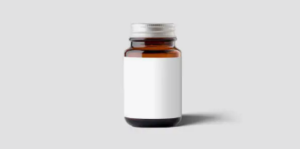Some medications must be kept in their original bottle to ensure safety and effectiveness. That is especially true for liquid medicines. These bottles help protect the medication from environmental factors like heat or light. For more tablet bottle packaging manufacturers, click here.
 Contract manufacturer of packaging materials for vitamins, dietary supplements, nutraceuticals and herbal products. Offers bottles, jars, tubs, sealed bags and hinged tins. It also provides small to large-run production and private-label options. FDA-approved and cGMP certified.
Contract manufacturer of packaging materials for vitamins, dietary supplements, nutraceuticals and herbal products. Offers bottles, jars, tubs, sealed bags and hinged tins. It also provides small to large-run production and private-label options. FDA-approved and cGMP certified.
Customization
Custom plastic pharmaceutical bottles can be designed to meet the specific requirements of different drug formulations. It ensures that they comply with regulatory guidelines while maximizing cost-effectiveness. To achieve this, manufacturers must balance several factors, including material selection, production scale, functional design, and sustainability.
The shape of the bottle can also be customized to match its characteristics and purposes. For example, liquid medications may require a bottle with an easy-to-measure mouth design. The bottle cap and seal can also be personalized, which can help the brand stand out in the market and increase customer loyalty.
Lastly, the medicine bottle should be compatible with the filling process. It can prevent bottle jams and other problems during the production process. In addition, it should be able to withstand heat sterilization. A reliable supplier will have a quality management system to ensure that the produced bottles meet all regulatory requirements. They should also be able to provide timely delivery and customer support.
Durability
The material that the pill bottle packaging is made of is important because it affects how long a medication can be kept safely. A tablet’s shelf life is reduced if the drug interacts with the plastic or metal from which a container is made. Therefore, manufacturers offer many different durable options for their medication bottles to ensure they can keep medicines safe.
Aside from glass, which is reusable and non-porous, the most common medicine bottles are plastic. The most popular plastics are polyethylene (PE) and polypropylene. PE is permeable to oxygen, which makes it unsuitable for some drug formulations. In contrast, PP is more resistant to oxygen and moisture than PE, making it suitable for certain pharmaceuticals.
In addition to ensuring that the tablet bottle packaging line is safe, it promotes production efficiency. It has a double-rail design that allows two counters to operate at the same time, which helps save high labour costs and increases output. In addition, it has a special
cap-feeding and counting machines that can adjust production depending on your products.
Recyclability
Many people assume those orange prescription pill bottles are waste but recyclable. These small plastic containers usually have the recycling symbol number five inside a chasing arrow. They can be recycled with other rigid plastics, such as milk and water bottles, drinking straws, and food containers. Whether or not you can recycle them depends on your local recycling programs and the type of plastic your bottle is made of. For more tablet bottle packaging manufacturers, click here.
You can also recycle other items with the number five symbol, such as plastic grocery bags and dairy containers. However, you must remove metal caps or lids from the bottles before recycling them. Alternatively, you can mail your bottle to Gimme 5, which accepts mailed-in plastics that are not accepted at local recycling facilities, such as the empty pill bottles you keep in your medicine cabinet.
Safety
Bottles are a popular choice for tablet and vitamin packaging, and they can be manufactured from glass or plastic. They are ideal for storing sensitive pharmaceutical products and liquids that require long storage periods, such as vitamin D and ibuprofen. They also help ensure tamper-proof and child-resistant packaging, decreasing the risk of children ingesting dangerous, controlled substances.
To ensure compliance with pharma regulations, packaging manufacturers must demonstrate that their products are safe for their intended use. It includes ensuring that the packaging will not interfere with the effectiveness of the drug inside. It must also protect the medication from physical wear and tear.
Accurate packaging is essential for a manufacturer’s brand and consumer safety. Miscounted pills in bottles can compromise patient health and lead to costly recalls.